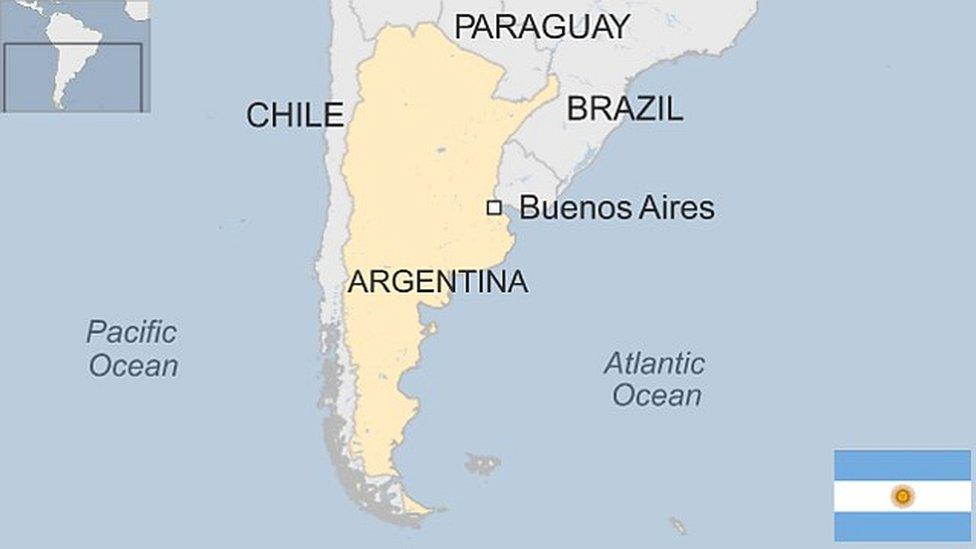Chile country profile
- Published
This page is no longer being updated. It was last updated on 11 December 2023
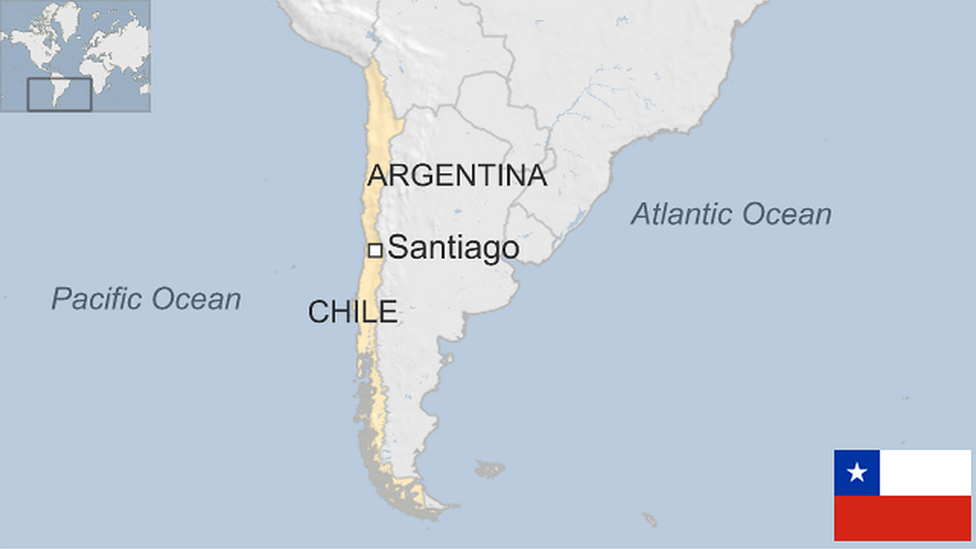
Chile is one of South America's most stable and prosperous nations. It has been relatively free of the coups and arbitrary governments that have blighted the continent.
The exception was the 17-year rule of General Augusto Pinochet, whose 1973 coup was one of the bloodiest in 20th-Century Latin America and whose dictatorship left more than 3,000 people dead and missing.
Chile's unusual, ribbon-like shape - 4,300km long and on average 175km wide - has given it a hugely varied climate.
This ranges from the world's driest desert - the Atacama - in the north, through a Mediterranean climate in the centre, to a snow-prone Alpine climate in the south, with glaciers, fjords and lakes.
See more country profiles, external - Profiles compiled by BBC Monitoring, external
REPUBLIC OF CHILE: FACTS
Capital: Santiago
Area: 756,096 sq km
Population: 18.4 million
Language: Spanish
Life expectancy: 78 years (men) 83 years (women)
LEADER
President: Gabriel Boric
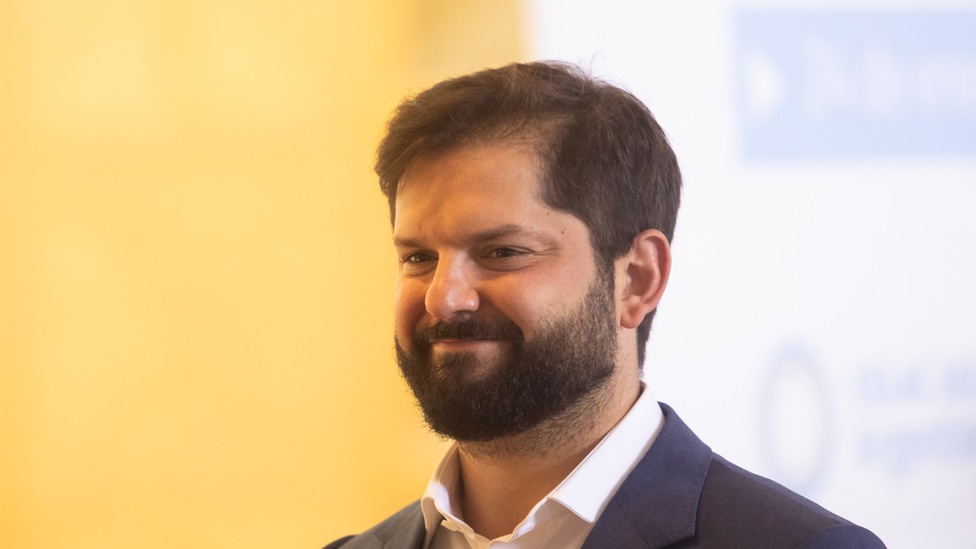
Leftist candidate Gabriel Boric won the presidential election in December 2021, defeating his right-wing rival José Antonio Kast to become the country's youngest head of state.
The former student protest leader has promised curbs on the market economy, after mass protests against inequality and corruption.
MEDIA
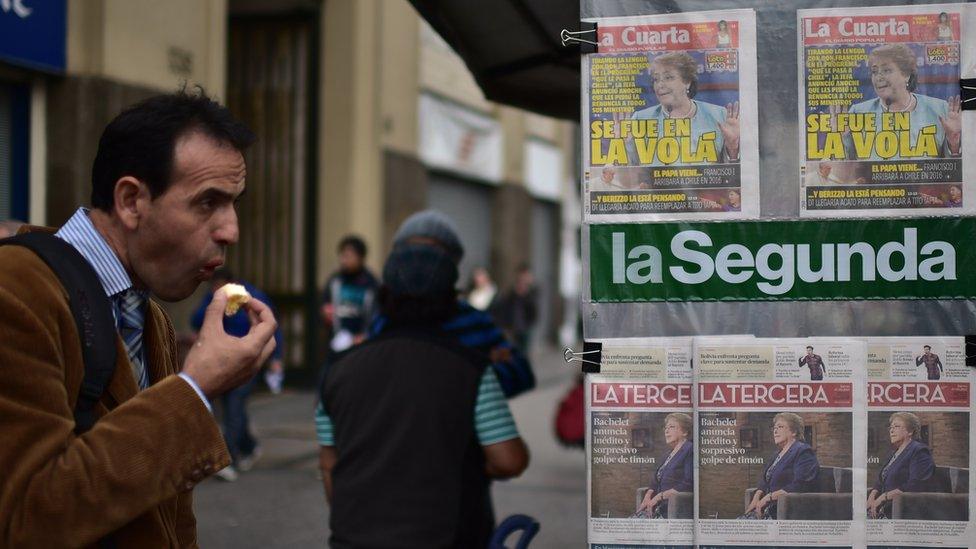
Chile's national and local terrestrial TV channels operate alongside extensive cable TV networks, which carry many US and international stations.
Radio is an important source of news; there are hundreds of stations, most of them commercial.
TIMELINE
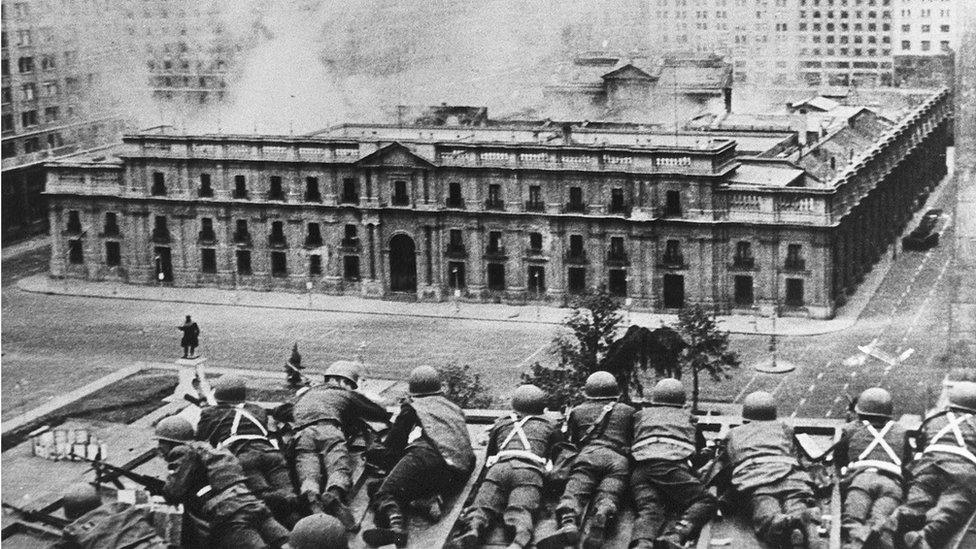
Troops fire on the presidential palace during the 1973 coup in which President Allende died
Some key dates in Chile's history:
1535 - Indigenous Araucanian people successfully resist first Spanish invasion of Chile.
1541 - Pedro de Valdivia begins Spanish conquest and founds Santiago.
1553 - Araucanians capture and kill Valdivia.
1810 - Junta in Santiago proclaims autonomy for Chile following the overthrow of the king of Spain by Napoleon.
1814 - Spain regains control of Chile.
1817 - Spanish defeated by Army of the Andes led by Jose de San Martin and Bernardo O'Higgins at the battles of Chacabuco and Maipu.
1818 - Chile becomes independent with O'Higgins as supreme leader.
1823-30 - O'Higgins forced to resign; civil war between liberal federalists and conservative centralists ends with conservative victory.
1851-61 - President Manuel Montt liberalises constitution and reduces privileges of landowners and church.
1879-84 - Chile increases its territory by one third after it defeats Peru and Bolivia in the War of the Pacific.
Late 19th Century - Pacification of Araucanians paves way for European immigration; large-scale mining of nitrate and copper begins.
1891 - Civil war between president and congress ends in congressional victory, with president reduced to figurehead.
1925 - New constitution increases presidential powers and separates church and state.
1927 - General Carlos Ibanez del Campo seizes power and establishes dictatorship.
1938-46 - Communists, Socialists and Radicals form Popular Front coalition and introduce economic policies based on US New Deal.
1970 - Salvador Allende becomes world's first democratically elected Marxist president and embarks on an extensive programme of nationalisation and radical social reform.
1973 - Chief of Staff General Augusto Pinochet ousts Allende in coup and proceeds to establish a brutal dictatorship.
1988 - Gen Pinochet loses a referendum on whether he should remain in power.
1989-90 - Christian Democrat Patricio Aylwin wins presidential election; Gen Pinochet steps down in 1990 as head of state but remains army head.
1994-95 - Eduardo Frei succeeds Aylwin as president and begins to reduce the military's influence.
1998 - Gen Pinochet retires from the army and is made life senator. He is arrested in the UK at the request of Spain on murder charges.
2000 - UK Home Secretary Jack Straw decides Gen Pinochet is not fit to be extradited. Pinochet returns to Chile.
2000 onwards - Chilean courts strip Pinochet of his immunity from prosecution several times but attempts to make him stand trial for alleged human rights offences fail, with judges usually citing concerns over the general's health.
2005 - Senate approves changes to the Pinochet-era constitution, including one which restores the president's right to dismiss military commanders.
2006 - Michelle Bachelet becomes Chile's first woman president. Chile and China sign a free-trade deal, Beijing's first in South America. Pinochet dies.
2008 - Peru files a lawsuit at the International Court of Justice in a bid to settle a long-standing dispute over maritime territory with Chile.
2010 - Hundreds die as an 8.8 magnitude quake strikes central Chile, the biggest to hit the country in 50 years.
2013 - Bolivia files a lawsuit against Chile at the International Court of Justice in The Hague to reclaim access to the Pacific it lost in the 19th Century War of the Pacific. Chile, Colombia, Mexico and Peru agree to scrap most tariffs on trade between them.
2020 - Chileans decide to rewrite the Pinochet-era constitution in a referendum.
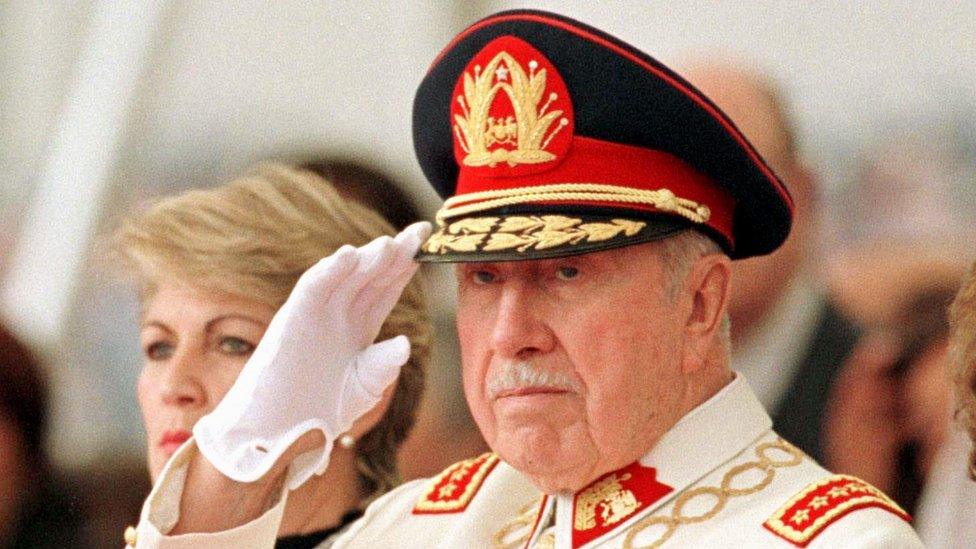
Former dictator General Augusto Pinochet was put under house arrest in Britain, where the government later overruled a decision to extradite him to Spain
- Published4 September 2023
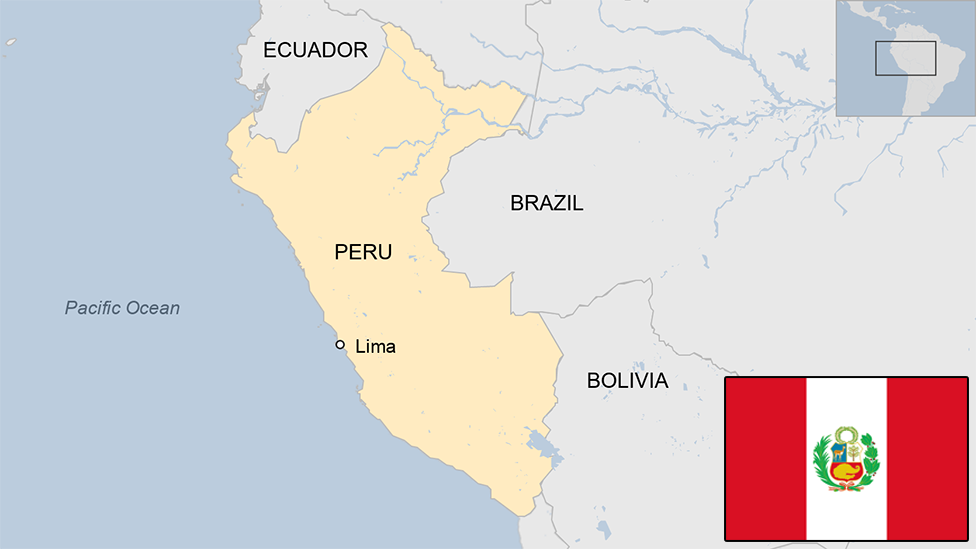
- Published7 February 2023
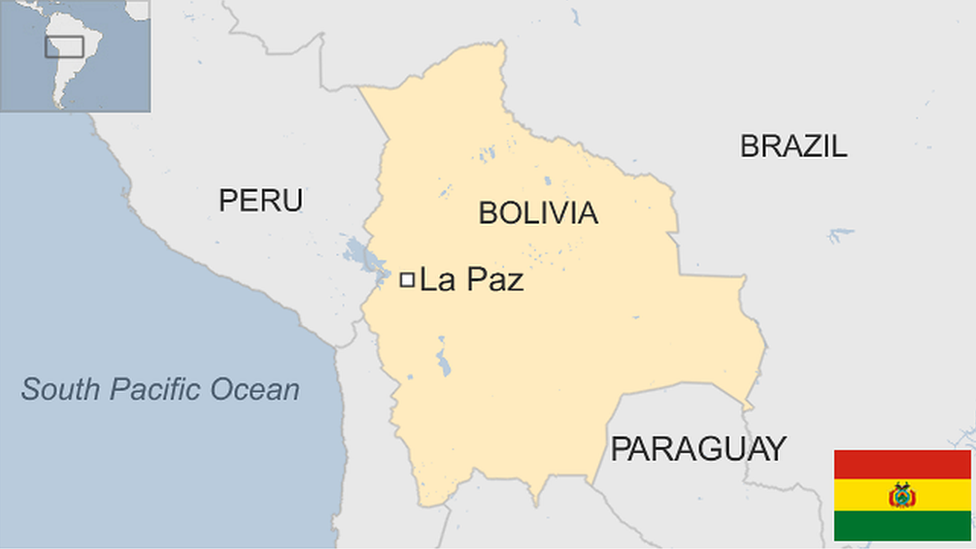
- Published22 August 2023
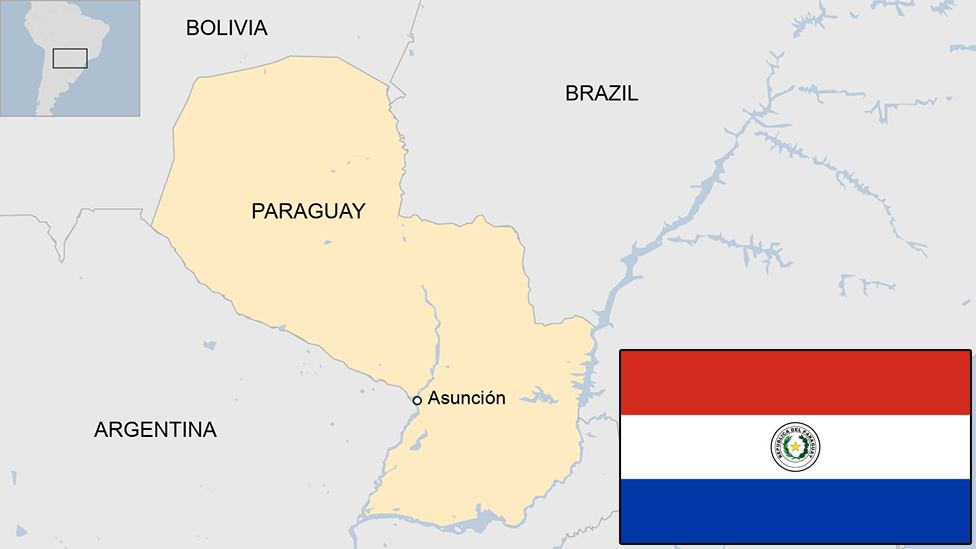
- Published25 November 2024

- Published8 January 2024
